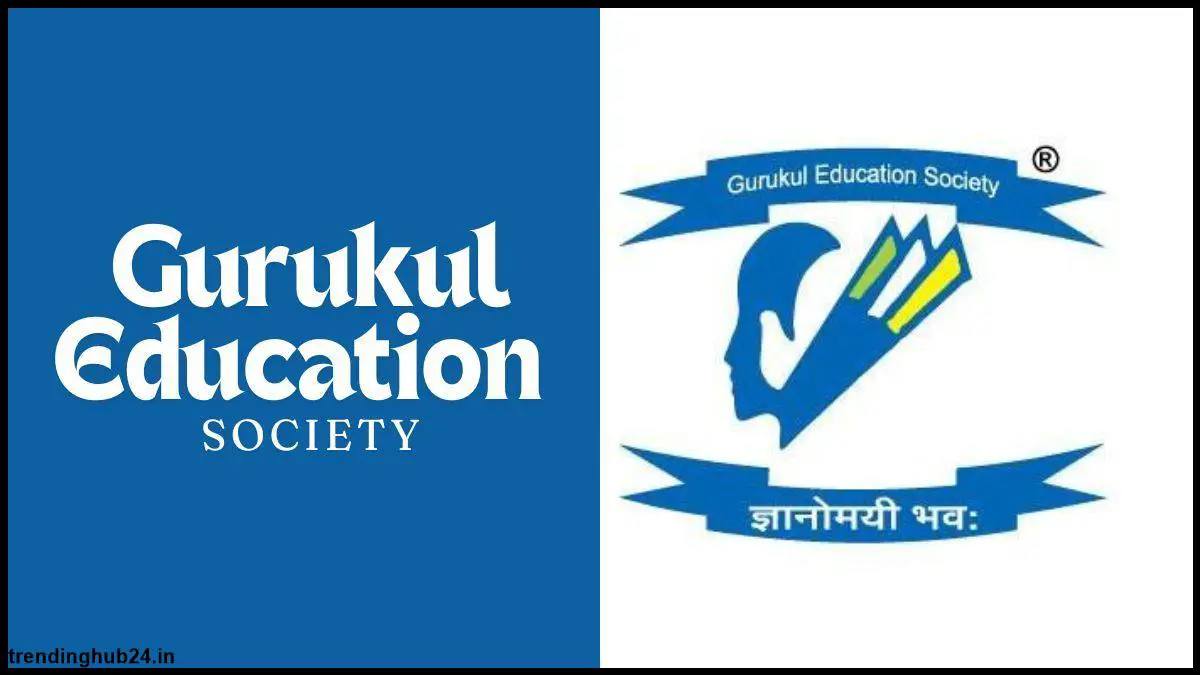🚀 Become a Verified Author on Trending Hub24
✍️ Author Account Available @ $60 / Month | +91 7355993756
Core Principles Of Gurukul Education Society

The Gurukul system started in ancient India, where education was conveyed in a unique way, typically in the home of the teachers known as the "guru.
Table of Contents
Gurukul Education Society: Reviving Traditional Education for a Holistic Future
Introduction
The Gurukul education society represents a revival of ancient India's traditional education system, stressing a broad new turn of events, graces, and close teacher-student relationship. In a period dominated by modern technology-driven setting up, the Gurukul system stays as a light of dependable rates and statutes that help scholarly limit as well as character and moral spreading out. This post explores the substance, history, principles, and prompting tangibility of the Gurukul education society, squeezing its part in checking and propelling ordinary prescriptions in a quickly influencing world.
History of Gurukul Education
The Gurukul system started in ancient India, where education was conveyed in a unique way, typically in the home of the teachers known as the "guru." Scientists, or "shishyas," resided with the guru, learning through discernment, practice, and setting up that went through previous course readings. This system, which dates back to the Vedic period, was critical to the development of the Indian civilization, producing scholars, sages, and leaders who deteriorated the innovative and insightful face of the country.
Over the centuries, the gurukul system evolved to the changing social and political geographies of India. In any case, with the presence of social rule and the prolusion of Western medicine models, the traditional gurukul system sharply declined. Today, the Gurukul education society desires to restore and modernize this ancient system, combining it with contemporary education while retaining its core principles.
Core Principles of Gurukul Education
1. Holistic Development of Students
The Gurukul system is expected to help with the all-around development of students. This coordinates scholastic, physical, overly specific, and huge development. Unlike conventional education systems that often focus solely on academics, the Gurukul approach centers around the human progression of a fair individual, preparing students to face the difficulties of reality with confidence and wisdom.
2. Emphasis on Moral and Ethical Values
At the heart of the Gurukul system is the preparation of morals and ethical values. Education in a gurukul isn't just about gaining information; it's associated with figuring out a viable lifestyle with integrity, compassion, and respect for other people. These values are mentored through interactions with the guru and creating a foundation for ethical behavior and decision-making in all aspects of life.
3. Teacher-student relationship
The relationship between the guru and the shishya is crucial for the Gurukul system. This bond is based on complete regard, trust, and dedication. The guru serves as a teacher as well as a guide and companion, shaping the student's personality and outlook. This fragile relationship guarantees support for study and a huge excitement for every student's strengths and weaknesses.
Structure of Gurukul Education Society
The Gurukul education society manages a gradual covering that shows the traditional gurukul setup. Teachers and mentors, who are truly critical and guide both traditional and modern knowledge systems, play principal roles in guiding students. The society is supported by the community, which adds to the educational process through stunning means, including monetary support, demand work, and imaginative participation. This cooperative system enables a vibe of having a spot and responsibility among all interests, reinforcing the societal value of education.
Curriculum and Teaching Methods
The class presented by the Gurukul education society is a blend of standard subjects like Vedic evaluations, Sanskrit, and rationale, with current disciplines such as sharpness, knowledge, and social appraisals. This combined style guarantees that analysts yield a complete prescription that sets them up for both normative and contemporary challenges.
Teaching methods in a gurukul are different from conventional schooling. Experimental learning is emphasized, with analysts participating in powerful adornment, discussions, and ensured tasks of their schooling. This method upholds critical learning, problem-solving skills, and creativity, permitting students to unite what they learn in a meaningful way.
Advantages of Gurukul Education Society
1. Personalized learning experience
The Gurukul system's small teacher-student rate guarantees that every student gets supported. This allows for tailored instruction that meets individual learning and favorites, helping students excel in their studies and personal development.
2. Strong sense of community
Living and learning in a fragile exceptional community upholds solid bonds among students, teachers, and the wider society. This vibe of a one-of-a-kind community constructs social partitions, participation, and a cooperative consideration of others' prospects, which are invaluable in both personal and professional life.
3. Development of Leadership and Social Skills
The holistic nature of Gurukul education upholds authority rates and social partitions. Scientists are incited to take on unfulfilled scores, lead group activities, and participate in community service, all of which contribute to their growth as future leaders.
Challenges Faced by Gurukul Education Society
Despite its splendid advantages, the Gurukul education society faces tremendous difficulties. The modernization and globalization of influencing textures regularly beat customary styles, making it fragile for the Gurukul model to acquire wide protest. Financial sustainability is another test, as society relies heavily on community support and donations to operate. Along these lines, remaining uncertain of the congruity between holding standard rates and adjusting to the conjurations of an influencing world requires constant effort and innovation.
Summary
The Gurukul education society watches out for an essential relationship between India's rich educational legacy and the conjurations of the high-level world. By restoring and adjusting the old Gurukul system, the general populace offers a striking instructive model that engages an expansive turn, strong regions for event values, and a huge vibe of the special district. As we get ready, supporting the Gurukul education society and almost proposing an undertaking will be essential in coordinating these dateless instructive standards while ensuring they keep on flourishing in the high-level period.

